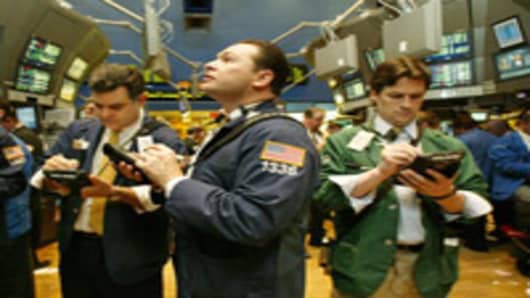A survey of 400 investors from across the world has found that one-on-one meetings with companies regularly lead to price sensitive informationbeing divulged.
“Investors and analysts regularly get price-sensitive information in one-on-one meetings with corporate executives,” Dr.Erik Roelofsen from the Rotterdam School of Management said.
“Almost half of respondents (47 percent) say they intentionally or unintentionally receive 'material' information in these talks.
This leads to inequality between investors and may distort the market,” Roelofsen said in a statement following the release of the survey.
“Company executives regularly hold one-on-one talks with analysts and large institutional investors. Companies and investors/analysts are at liberty to exchange information on general subjects in a dialogue. With a few exceptions, companies are, however, banned from passing on share-sensitive information in their discussion with investors/analysts,” he said.
“Hard evidence that anyone has done this is difficult to obtain, since it is often unknown who talked to whom when. Moreover, the dividing line between what is and is not share-sensitive information is sometimes blurred in actual practice,” Roelofsen added.
The survey found the percentage of people getting price-sensitive information was lower in the US than in Asia and Europe given US legislation is far stricter.
To create greater transparencyand thus a more level playing field for all, companies should reveal with whom they talked and the dates of these talks, the report advised.
“Most executives of large and mid-sized companies hold about 100 to 150 one-on-one meetings with institutional investors a year. Part of these meetings are arranged for by brokers getting a fee. The subjects being dealt with vary, but often include the strategic direction and funding of the company,” Roelofsen said.
CEOs Closely Scrutinized
Company executives aren’t always aware of it, but their conduct in meetings of this type is closely scrutinized, he explained.
"Some investors and analysts even follow training to better catch and understand these signals: For example, is an executive lying or feeling uncertain?” Roelofsen added.
With the boundary between what is price sensitive and what is not often blurred, enforcement becomes very difficult.
“It is difficult for regulators to enforce compliance with the rules, because of the blurred dividing lines between appropriate and inappropriate behavior and also because of their limited knowledge of what happens during these talks,” he said.
Rather than impose stricter rules, Roelofsen is calling for greater transparency on who companies meet, and when.
“Because of the large number of talks and the connected risks of market distortions, I advocate the creation of greater transparency by forcing companies to explicitly disclose the names of those they have talked to and when they did so, through their websites or other means,” he said.



